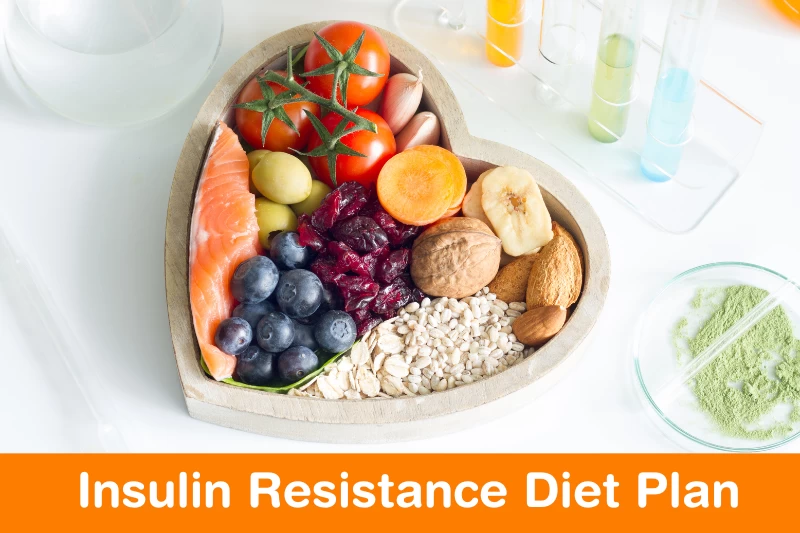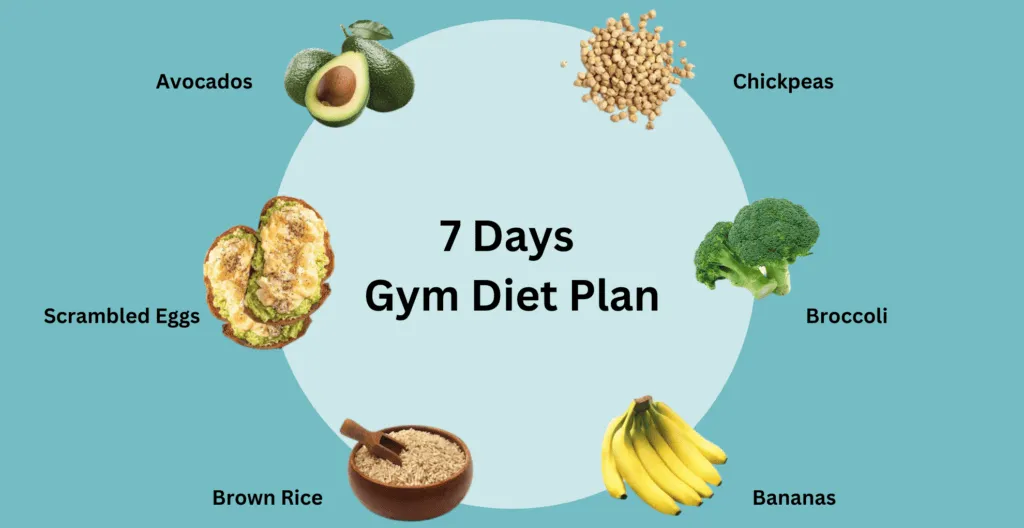Insulin resistance diets have a significant influence in lowering the risk of pre-diabetes and type 2 diabetes. Insulin resistance is defined by your body's failure to react to the hormone insulin. Fortunately, appropriate nutritional practices may help control this illness successfully. A well-balanced diet may help regulate blood sugar levels and promote general health and well-being. In this post, we'll look at the advantages of this diet and the foods that may assist with insulin resistance.
What Is Insulin Resistance?
Humans need a steady amount of energy to operate, and glucose is the major source of that energy. The digestive tract converts carbs and proteins in diets into glucose.
When we eat, the pancreas produces insulin into our circulation. It maintains appropriate blood sugar levels, lets glucose to enter our cells, and provides energy for a variety of biological processes. It also helps to control excess glucose by encouraging the liver and muscles to reserve it for later use.
However, insulin resistance, which develops as a result of genetics and a sedentary lifestyle, causes cells to be less sensitive to insulin signals. As a result, glucose fails to enter cells properly, resulting in elevated blood sugar levels. This increases the risk of type 2 diabetes, hypertension, dyslipidemia, and hyperuricemia.
Normal blood sugar levels range from 80 to 140 milligrams per deciliter (mg/dL) before and after meals, however this varies by person. If this figure is too high or too low, there may be major health consequences.
High blood sugar levels might harm your blood vessels and nerves. This raises the risk of heart disease, renal difficulties, and vision loss. Diabetic ketoacidosis (DKA) is a serious illness that needs rapid medical intervention.
Insulin resistance is becoming an increasing problem. An study of the 2021 National Health and Nutrition study Survey (NHANES) data revealed that 40% of American people aged 18 to 44 have insulin resistance.
To control insulin resistance, a well-balanced diet and frequent exercise are essential. Scroll down to the next section to understand how your diet may help with blood sugar control.
Read also:
- 10 Kale Smoothie Recipes That Pack A Powerfully Healthy Punch
- The Scientific Truth About 10 Controversial Foods And Drinks
- Atkins Diet: The Ultimate Guide
- Southern Comfort Food Recipes You'll Want To Make On Repeat
What Is The Best Diet For Insulin Resistance?

The best diet for managing insulin resistance focuses on balancing blood sugar levels and making mindful food choices. Here are a few tips you may follow:
- Incorporate fruits and vegetables rich in fiber and antioxidants like blueberries, apples, and grapes. They have anti-diabetic properties and may help enhance insulin sensitivityi and lower blood glucose levels.
- Consume low-fat dairy products, as they offer calcium and protein. Include whole grains like oats and brown rice in your diet. They provide complex carbohydrates that improve insulin sensitivity and prevent blood sugar fluctuations.
- Choose lean proteins and legumes. They are packed with fiber and protein, which may aid in blood sugar control.
Additionally, the best diet for insulin resistance focuses on the principles of the glycemic index (GI). It is a measure of how rapidly foods raise blood sugar levels. Consuming low-GI foods like apples, oranges, tomatoes, cucumbers, oats, barley, and non-starchy vegetables can be beneficial. They have a slower and steadier impact on blood sugar levels and help to prevent rapid spikes and crashes.
Thus, this diet can help bring a positive change in your blood sugar levels. Keep scrolling to learn how this diet can improve your overall health and well-being in the next section.
Health Benefits Of The Insulin Resistance Diet
1. May Help Control Blood Sugar Levels
The insulin resistance diet encourages the intake of complex carbs, fiber, and healthy fats, which helps to decrease the sugar absorption process. This slow release of sugar into the circulation eliminates spikes and allows insulin to act more effectively. This lowers the chance of acquiring diabetes.
2. May Help Boost Heart Health
This diet restricts the intake of saturated fats. Excess intake of these fats can lead to cholesterol buildup in your blood vessels. This buildup can narrow the arteries and increase the risk of heart disease. Thus, a diet low in saturated fats may help lower cholesterol levels and help reduce the risk of cardiovascular issues.
3. May Boost Energy Levels
Complex carbs like whole grains and legumes provide a consistent source of energy throughout the day, preventing energy spikes and crashes. Since this diet emphasizes the intake of complex carbs, it may help improve your daily productivity.
4. May Reduce The Risk Of Chronic Diseases
The diet focuses on low-GI foods rich in healthy fats and essential vitamins and minerals that may aid in weight loss and enhance insulin sensitivity. It may also help prevent various health complications like type 2 diabetes, obesity, and high blood pressure.
5. May Aid In Weight Management
Consuming low-GI and fiber-rich meals may help avoid abrupt blood sugar rises and crashes. This also lessens your desires for sweet and high-calorie meals, allowing you to create healthy eating habits. This might lead to weight reduction over time and improved insulin sensitivity.
An insulin resistance diet may help you get started on your weight reduction quest, but it might be difficult. But do not worry. The next section offers advice on how to reduce weight if you have insulin resistance.
Read also:
- Perfect Summer Fruit Salad
- Nutritionist's Guide To Navigating The Food Bowl Trend
- Bowl Food Recipes: Delicious And Convenient Meals For Every Occasion
- Delicious And Nutritious Meals For Busy Individuals
How To Lose Weight When You Have Insulin Resistance
1. Follow A Balanced Diet
Consume whole foods like fruits, vegetables, lean proteins, and whole grains to keep your body nourished and full . Avoid sugary and processed foods that can spike blood sugar levels and decrease insulin sensitivity . Such foods are also high in calories. Therefore, restricting them may help you manage your weight.
2. Adopt A Regular Exercise Routine
Incorporate physical activity into your routine. Even a short walk or aerobic exercise for 30 minutes, 3-5 days a week, can help improve insulin sensitivity and aid in weight loss (
3. Exercise Portion Control
Smaller, frequent meals can help improve insulin secretion and stabilize blood sugar levels. A study on healthy men with impaired glucose tolerance found that having nine smaller but frequent meals daily could improve glucose metabolism . Additionally, being mindful of your portion sizes may help avoid overeating.
4. Keep Yourself Hydrated
Sometimes, you might mistake thirst for hunger. Hence, drink plenty of water daily to minimize cravings and unnecessary snacking.
5. Rest Well
Poor sleep can affect the production of hunger hormones like ghrelin, increasing appetite and encouraging overeating. This makes weight loss more challenging. Make sure you get enough quality sleep every day.
Read also: Breakfast: The Key To A Healthy And Energetic Start










